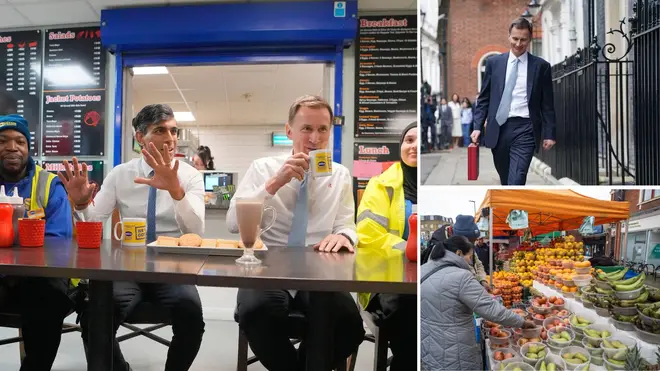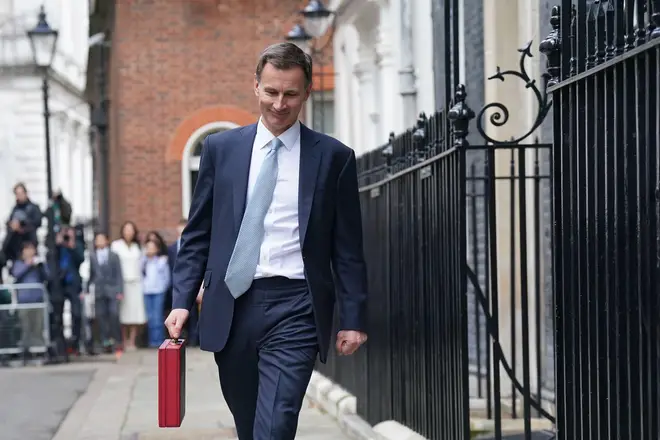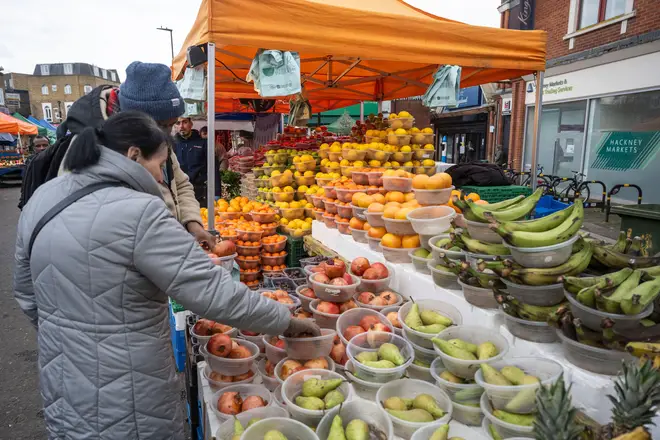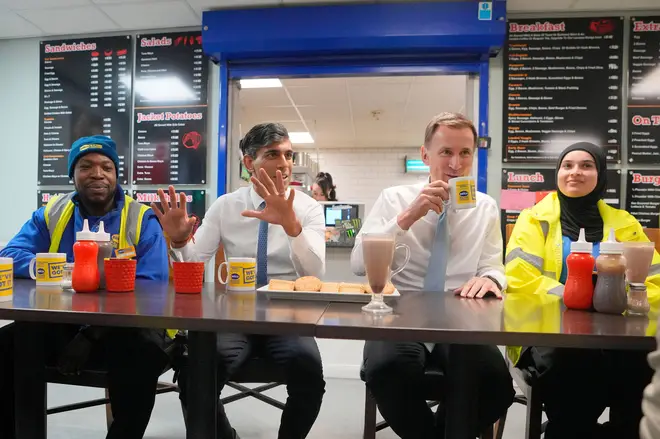
Paul Brand 10am - 12pm
7 March 2024, 08:47 | Updated: 7 March 2024, 08:52

Chancellor Jeremy Hunt this morning hailed his “quietly purring BMW” of Budgets this morning on LBC, but his optimism comes amid warnings that many people will be left worse off.
Mr Hunt slashed National Insurance again, giving people an average of £450 back, on top of another £450 in changes last Autumn.
He told Nick Ferrari at Breakfast this morning that it is ‘unfair’ that income you get from work is taxed twice
But despite the NI cut, frozen income tax rates and thresholds mean many people have lost money overall, Labour says.

When asked about so-called fiscal drag, whereby people are pulled into higher rates while thresholds are frozen, the Chancellor said this morning he was "not pretending" he had brought "all those taxes down.”
"Freezing the thresholds is one of the ways in which taxes have gone up in order to pay for the jobs we protected during Covid, to help... families paying their electricity over last winter, all those other very important things,” he said.
"And I'm not pretending that I brought all those taxes down in one go. We can't afford to do that. It wouldn't be responsible to do that. But do I want to carry on bringing them down, as I did yesterday, as I did in the autumn statement? Yes, I do."
Read more: Budget at a glance - what you need to know

Income tax thresholds remain unchanged, meaning as people's pay goes up, more people will pay higher rates of income tax.
From April people will see their take-home pay rise due to the NI changes but tax thresholds, the amount you are allowed to earn before you start paying tax/NI, or before people who earn more start paying the higher rate of tax - will remain frozen this year and all the way to 2028.
People will end up paying more tax than they otherwise would - because their pay can rise with inflation but the thresholds don't keep up.

'Floating voters' respond to Jeremy Hunt's Budget | LBC
As a result of the Budget, workers are better off if they earn between £32,000 and £55,000, or more than £131,000, but everyone else will be paying more in 2024-25 than they would have done if the government had raised the tax thresholds as normal.
Someone on a £50,000 salary is best off, by £752 a year.
But someone on £16,000 a year will pay £607 more in total.
The Institute for Fiscal Studies (IFS) said households would be worse off at the election, expected this year, than they were at the start of this parliament.

Two NIC cuts put together mean the government is giving back "a portion" of the money taken away through other tax changes, the IFS said.
It said that by 2027 the average earner would be only £140 better off, and only people earning between £32,000 and £55,000 a year would be better off from the combined tax changes.
Experts from the IFS and the Resolution Foundation say the Budget leaves the "big picture" largely unchanged, with living standards squeezed and overall taxation going up thanks to more people being dragged into higher tax bands.
Paul Johnson, director of the IFS, said the Chancellor had used "smoke and mirrors”.
"Overall, for every £1 given back to workers (including the self-employed) by the NICs cuts, £1.30 will have been taken away due to threshold changes between 2021 and 2024, with this rising to £1.90 in 2027."
The Resolution Foundation’s Torsten Bell said Wednesday's tax cuts relied on "the prospect of a sour £19 billion of post-election tax rises, and the fiscal fiction that another £19 billion of cuts to public services can be delivered".
Labour said the Chancellor's plans will only pay back £5 for every extra £10 people pay in tax, while another 3.7 million people face being dragged into paying income tax thanks to the threshold freeze.
Labour leader Sir Keir Starmer said the government's strategy was to "give with one hand, and take even more with the other".
Rachel Reeves, the shadow chancellor, said: "It is just a cynical gimmick from a weak Prime Minister who is desperately trying to cling on to power."